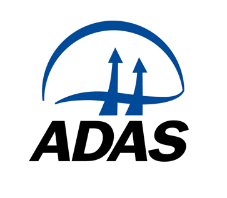Robert is a 3rd-year PhD student at the University of Sheffield who completed his PIPS placement at ADAS, the UK’s largest independent provider of agricultural and environmental consultancy, policy advice and research and development. He was able to connect to ADAS with the help of LinkedIn, which has proven to be a vital networking tool. The WRDTP has its own LinkedIn group and page for our students to join and follow which we hope will enable more connections such as Robert’s in the future.
The featured image is of the logo for ADAS.
What did you do?
I worked with crop physiology and agronomy consultants at ADAS.
My first task was to review existing methods of analysing data gathered on farms and similar data sets and examine different methods to analyse the data collected over the last 7 years. I delivered the results of this as a presentation to the crop physiology group within ADAS.
The next part of my placement involved working with various consultants with trial carried out with various industrial partners using new products and techniques. This largely involved data preparation and analysis.
What made you want to do that particular placement?
I have long had an interest in the agricultural sector understanding how it works, the improvements that can be made and the changes necessary to move towards a more sustainable future. As a group who work closely with UK growers and the larger companies that support these growers, ADAS was centrally placed to provide insight into these interests.
How did you go about finding and planning your PIPS?
I reached out to a previous researcher at the university of Sheffield via LinkedIn and they helped me to arrange a placement.
What have you gained from doing your PIPS?
I have gained a larger appreciation of agricultural consulting. The skills that are required and the expertise and knowledge necessary. I have a greater appreciation for a range of statistical tools required in this field, some of which are transferable to my PhD work.
Secondly, the requirement to work to strict deadlines with multiple projects running in tandem has allowed the development of my organisation and time keeping skills. As well as a greater appreciation of my own abilities keeping to deadlines and the importance of reasonable expectations, particularly workload.
Finally, I have developed a network of contacts within an industry I am interested in working in after my PhD.
How would you sum up your PIPS experience?
Overall, my PIPS placement was a very positive experience, allowing me to work in an engaging environment and providing me with first-hand experience in an industry that greatly interests me. Not only will the skills I have been able to develop, but the contacts I have made, will undoubtedly provide new potential opportunities after finishing my PhD.
What advice would you give to other PGRs about PIPS?
I would strongly suggest investing time in researching potential roles and industries that might interest you. Linked in is a very powerful tool for reaching out to companies, with will mostly be more than happy to receive enthusiastic and skilled individuals such as those completing a PhD. Even if a role is not advertised, just contacting potential companies is a great way to potentially craft a more bespoke placement that suits what you are trying to get out of the experience.
–

